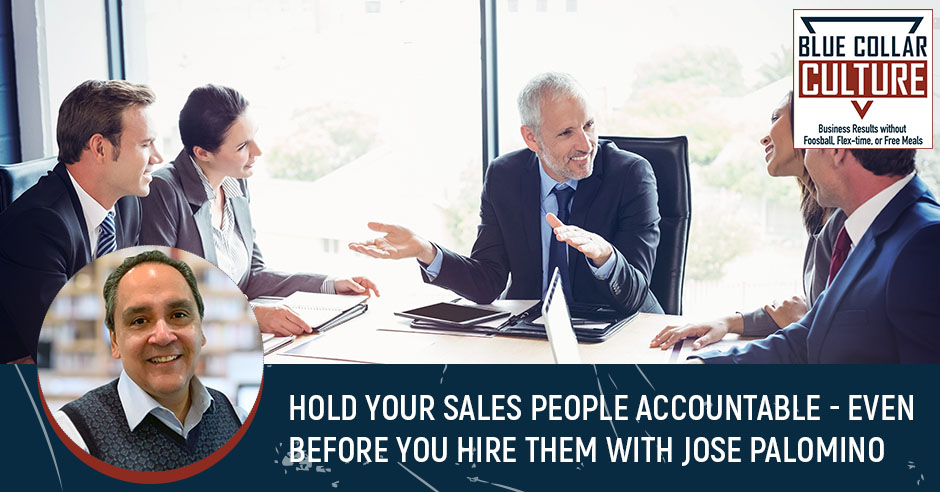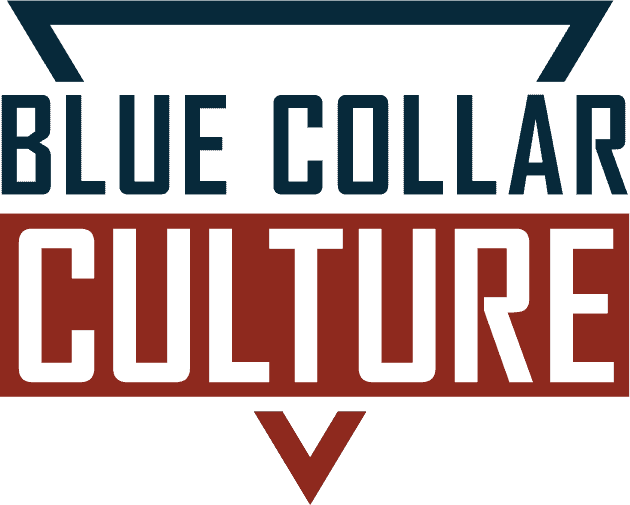
As an owner, when you’re hiring people, especially salespeople, you have to support and get involved with them. You need to find a balance of keeping them accountable. You’re the owner, so accountability will be split. Learn how to find the right people for your company even before you hire them. Join your host Ryan Englin and his guest Jose Palomino as they discuss how to hire and hold your salespeople accountable. Jose is the founder and CEO of Value Prop Interactive. Learn what Jose’s requirements are for screening someone and how you find only the best quality of salespeople. Be the best-involved owner that you can be today.
—
Hold Your Sales People Accountable – Even Before You Hire Them With Jose Palomino
Welcome back to another episode. I am excited about our guest because, as you know, I talk a lot about hiring. We talk a lot about hiring on this show, but one of the things that we don’t do a lot of hiring with is salespeople, especially those outside sales reps. Maybe they’re making those B2B calls for you. Salespeople are a different breed. If you’ve talked to people about salespeople, there’s a different way to manage them, to motivate them.
It’s something that requires a lot of special expertise. That’s why I’m excited about our guest. He’s spent a lot of time in B2B, working in corporate for large organizations, but he likes to work with B2B entrepreneurs to help them unlock business growth. He’s created a system called The Revenue Throughput System, which we’re going to talk a little bit about. I want to welcome to this show, Jose Palomino. Thanks for being here.
It’s my pleasure, Ryan.
Tell me, what is the biggest myth about your industry?
There are probably two things that stand out and that’s a great question, Ryan. The first thing is that, especially for owner-led businesses, companies that are not enterprises where the owner sometimes reaches a point, whether it’s hiring a sales rep or even doing something in marketing, anything along that line where they just want somebody to relieve the pain. They think they can somehow hand it over to somebody and not have to get very intimately involved because they’re the experts.
They know SEO, ad words, lead generation and sales management. They may well know those things but if you’re the owner-founder, who brought you a company from an idea to its present level of success, you’re going to be involved. You’re going to have to be involved and want to be involved. By that, I don’t mean that you’re going to tell them how to do their job because if you could do that, you wouldn’t need them and that doesn’t add anything.
Frankly, as a consultant, an advisor, when you’re in that situation, it’s a thankless task. At some point, it’s a little frustrating for everybody. Nobody is happy at that point. The worst-case scenario is not the over-involved owner. The worst-case scenario is the under-involved owner where they’ve handed it over. Three, four months later, you’re not going to see the results you wanted. They’re going to point it in the wrong direction and do something that didn’t make a whole lot of sense.
As the owner, you’re going to be frustrated with them. As the practitioner, they’re going to be frustrated with you because they’re going to say, “Dude, this is what you told us or what we understood you wanted. You didn’t want to get that involved with things except for now.” One of the biggest myths is that you can, in any way, delegate this out when you’re still in that owner-led category where you’re $10 million, $20 million, $30 million business, you’re going to be involved. There’s no one that can take that off your plate.
You can't just let salespeople loose and expect a return. They need to be managed. Click To TweetI’ve heard people say that even salespeople need to be managed. You can’t turn them loose and expect they’re going to be able to go out hunting and bring back the kill that you wanted. If you don’t have solid management for salespeople, it can be a real mess.
Also, especially for smaller companies. For example, you’re an owner-led business. Most decisions, somehow route their way back to your desk. That’s the nature of a $10-million company. We have people with this, that or the other title. You say, “Now it’s time, we’re going to mature. We’re going to hire ourselves a good full-time sales rep. This person’s going to help us grow the business.” You interview a few folks and then you hire that person. You hire one. You’re thinking, “Maybe next year we’ll hire the second.” Who’s managing them to your exact point? Who’s leading them? The reality is your very best sales reps that you might be able to hire at that size company are going to be somebody who hopefully have good strong sales acumen.
I’ll get into another myth that gets involved in this as well. They need accountability. Sales is an accountability game. You need to know what they’re doing. I’ve seen it go too far the other way, where you smother somebody and if they’re talented and they have other options, they’re not going to tolerate it. There’s an actual balancing act of where you hold them accountable. The way I look at it as is accountability sounds like a top-down perspective like, “I’m going to make sure they do their job.”
Turn that around to, “I as the owner, I’m going to be accountable to them to support them. I’m going to make sure that they are tracking opportunities a certain way and helping them where necessary. I’m going to give them all the resources they might need to be successful and they’re going to feel very supported by me.” For example, they got a big meeting going. They say, “Boss, I would love for you to come with me to this big meeting because it’s a big opportunity.” Go and support them, but ask them, “What’s the game plan for the meeting. We have an hour with this client. How do we want to tackle this? What do you think we should do here?”
Those are empowering questions that show that sales rep that you hired. Again, you only have one, so you have one headcount. The temptation is to say, “This is somebody who’s a 50-year-old professional with 25 years’ experience selling and in the industry for a long time. I should be able to count on them to do their job.” That doesn’t work. Let me say it differently. Maybe it works somewhere. I’ve never seen it work. It needs to be a sense of support, accountability, some cadence and regular connection so that you, as the owner who hired that one sales rep.
If you have hired that one sales rep and you know what happens if you take your foot off the pedal. I’m not talking about something draconian where you’re hammering people, because again, you won’t keep talent that way. That right balance where they know, “Somebody’s paying attention to this. I have to achieve certain things to be able to feel good about myself and earn what I want to earn.” Those are all things that go into that sales management picture.
It got me thinking about something I’ve heard in the past. I would love to know what your thoughts are on this. I have been told by many sales experts that when you’re hiring your first salesperson, you can’t stop at one. You got to hire two because it allows them to be able to play off each other. It gives them someone to compete with. It makes it a little bit more game because good salespeople need some of that competition. What are your thoughts on that?
I would agree 100% with the possible caveat of this, which is good salespeople are not cheap and affordable salespeople are usually not good. I’ve seen owners do that. If you can get one good headcount and they’re going to come in with industry experience, a proven track record at a base salary of anywhere from $80,000 to $110,000 and you’re a small company. You’re not a major corporate versus 2 for 48. It’s not worth it.

I’d rather tell that person, “My vision for your position is that you prove out that this can be sold this way.” By doing so, I will then bring on a colleague for you. Sometimes that first hire might be somebody who’s thinking, “Will I be the leader?” Sometimes they don’t want to be. There are professional salespeople that are very happy being an individual contributor, making a very good living and not have to worry about somebody else’s performance.
That’s exhausting for some people and often, a lot of sales managers are good, but not great sales reps, but they’re very good managers. It’s similar to sports. Oftentimes, the best coaches weren’t Michael Jordan-level talents, but they were good. They belonged on the team but weren’t that top echelon. They realized my best gift is working with people, motivating people. If you are a very small company, hiring 1 or 2, if you can afford the two hires, do it. I’d agree with that advice. The only further caveat I’d say though is again, because of the cost, you have to know how to screen for these people because you could end up $250,000 in the hole a year from now and have nothing to show for it.
It’s better to hire one good person, pay them what they’re worth. Pay for that top-level talent than it is to say, “I’ve only got $110,000 budget. Let me split it between two people because maybe they’ll be more competitive.” It’s better to go all-in with one that’s right.
I think so. The exception to that would be only if you personally reading this as an owner-operator, you know for a fact that you’re a very good sales leader or other people have told you that. People who know you. You are part of a business roundtable or you have a business coach who says, “You’re good at this. You should be out there more often.” You might bring in somebody more junior at that more affordable rate to open up territory for you. Essentially in large companies, that would be called an SDR, Sales Development Rep.
You have the leadership skills as the owner-operator that can guide, manage and mentor this junior salesperson versus say, “I want to step back from sales and be more of that support and accountable to them hiring that well-experienced, well-seasoned.” Someone’s got the experience in the industry than hiring that one person, is that right?
Absolutely. If you’re talking about affordability and I hate to talk about numbers because one day somebody reading this years from now, the numbers may be all wacky, but the essential thought is quality like in everything in life costs something. The reality is you may be reading this to say, “There’s no way I can afford to pay $110,000 base to anybody under any circumstances.” I would say, “Open up your budget to the most you can manage.” It has to be realistic for you but hold the bar up high on the quality of person you’re looking for. This is an area where I think a lot of owners, especially in technical, industrial categories, manufacturing, OEM, professional, industrial services, often fail in this one other thing.
You didn’t ask this question but I think it’s important to hit on it. This is going to sound very counterintuitive. They overvalue industry and product knowledge because they often remember the days when they started the business when they were the practitioner. They were the ones doing the doing right. They knew everything about doing, making the part or doing the service. They value that in somebody who can talk a great game about the doing, but you’re not hiring somebody to be your project manager on delivery.
You’re not hiring somebody to be the manufacturing foreman. You’re hiring somebody to get you a new business. When you weigh on your scorecard and I’ve done this with many owners. I say, “These are the different attributes. Put a balanced weight, what you think is most important and inevitably industry knowledge, product knowledge is like a ten.” Things like negotiation, lead generation or being able to present are 5, 6, or 7. They’re important but not as important as, “This person has to know their stuff.” The reality is people learn a lot these days. They can research your product thoroughly. You need somebody who has good sales acumen. That’s a whole different skill set. That’s a universal skill set of dealing with people that has nothing to do with your industry or product.
Sales is an accountability game. Click To TweetIt’s almost more behavior-based than it is, “Do they have that product knowledge?” When we’re screening people and talking to our clients about how do you hire a technician or how do you hire a customer service rep? I always tell them, “Make sure you screen for the things that you can’t or won’t teach.” I can teach somebody about my product or service. In fact, it’s probably going to be different enough that I’m going to have to train them anyway when they’re new on my team if I wanted to teach them about my product or service. What I can’t teach a salesperson to do, for example, is to pick up that phone. If they look at the phone and it weighs 900 pounds every time they pick it up, I can’t overcome that even if I’m a great sales leader.
No amount of training could overcome that.
I can teach them not only my industry or my prospects or some of our jargon, but the one that always kills me is, especially in sales, they always want someone that has experienced using their CRM. I’m like, “What are the odds of that?” I’m going to teach them how to use it our way anyway, so I can promise you the way we use it is not the way everybody else uses it.
Especially in some of these older industrial categories, you’d be happy if you found somebody who knows how to spell CRM still. Be happy with that and they can learn it. There’s a whole set of behaviors, mindsets, skills that are industry and product agnostic. I’m not saying if you take somebody who was selling, I’m making this up, but let’s say dental supplies. You’re selling like cyclotrons to the hospitals or CAT scan machines that you don’t need somebody with some range of transferable skills, depending on what you’re selling. It can’t be like where it’s a complete alien thing to them, but they don’t need to know how to engineer a CAT scan machine or how to build one from scratch like some survivor test.
You give them all the parts and say, “Build a CAT scan machine.” It’s not realistic. They need to know its application and how people use it. What matters to people? If I don’t know, how do I ask those questions so people tell me where they might need a new machine or product or service? It’s finding those gaps. It’s knowing how to dig in to create value for customers. That’s the thing you’re looking for.
One of the first things, if you’re interviewing a salesperson is to make a note, write it down as you’re interviewing this person. Is this person asking me questions about my gaps in my business, my needs in my business, where a sales process might fit in? Are they asking me questions about like, “What’s the territory? Who am I calling on?” Anybody could do that. That’s the back of a crackerjack box in sales, but are they probing, especially if they know they’re going to be 1 of 1 or 1 of 2 sales reps in my small company, are they asking me about my company and what I’m doing?
That’s what I need them to do in the field. If they’re not doing that when they’re selling the thing that they know the most about, which is themselves, how in the world they’re going to do that for me? They’re not. It’s not the person that talks the fastest or the person who has like the Jedi mind tricks and say, “That’s a great technique.” That doesn’t work anymore. I have a real problem with tricking people into buying from you. If you’re in B2B, you’re selling a considered purchase. It’s a capital purchase. It usually involves more than one decision-maker. It’s learning how to sell into the organization. That’s the other thing. You want to make sure the person you’re interviewing understands the complexity of the sales environment that you sell into.
You don’t want to take that guy that’s been selling cars for ten years and go, “He’s got great sales experience.”

It is a sales experience for a transactional sale but it’s not going to help if you’re selling through distribution, for example, where you have to work through five levels in a territory to move a product.
It’s got me thinking here. We spend a lot of time in our program talking about how to do you, screen people. One of the biggest challenges, I think you echoed this, forget salespeople, in general, during the interview process, the person applying for the job is the one that should be selling. We had a client earlier in 2021, who showed me his interview process. The first line was spent 25 to 30 minutes telling how awesome you are as the employer. Sell you for 20 or 30 minutes and then start asking the questions. My problem has always been, “You gave them all the answers to the test.” Why would you do that?
We believe in an inclusive culture. Don’t be surprised when he says I want to be part of an inclusive culture.
I want to know a little bit more about screening salespeople because that’s the about salespeople is they should be good at selling. What is one tip that you could give besides are they asking me the right questions about my business? Are they understanding the gaps here? Are they starting to see the big picture? What’s another tip you could give when it comes to screening salespeople so you don’t get duped?
I think a few things and this will tie a little bit to the complexity of your product or whatever you’re selling. You literally are selling CAT scan machines. Obviously, it’s a specialized field, medical equipment. Capital is a different thing. Let’s assume most of us on this episode, reading this, aren’t doing that but you do want to know, “Does this person communicate well? Did they explain themselves well? Did they keep answers short?” By short, I don’t mean terse, but not every answer has to be a monologue. “Did they dominate the conversation,” which can sound like or could feel like that’s a person who could control the conversation?
In actuality, that’s a person that will say a lot of words, leave the meeting thinking it was a good meeting and the prospect’s thinking, “That person likes to hear themselves talk.” You want somebody who’s a good conversationalist. It sounds like a soft skill, but it’s a quintessential skill of selling. You need to be able to engage your people. They want to engage with you. This is a softer thing but did you like being in the room with this person for an hour? Were you relieved when they left? Those are soft things to point to, but they’re real and human factors.
I think on a more technical background asking a few questions that I think they should have good answers for. For example, what did they find is the secret up to this point in their career? Presumably, they’d been selling for a living, the secret to their success. What works for them, help them explain to you what is their typical sales process? It doesn’t mean it’s going to be your process or that you need to use that process when you hire this person. You do want to get a sense that they understand the question. If they say, “When people call us, I ask the questions, I make a proposal and follow up.” That’s not a process and then a miracle happens on a project plan.
I liked that question because you’re not really looking for the right answer. There is no right answer. “What’s the secret to your success?” You’re thinking, “Have they thought through this? Have they thought through the process of the success that they’ve achieved so far?” I would say for a lot of our readers right now and a lot of the work we do, we work with a lot of commercial service companies. They won’t be selling the equipment as much. Some manufacturing will be out there doing that, but for a lot of it, it’s going to be commercial services.
Really good salespeople are not cheap and really cheap salespeople are not good. Find a balance. Click To TweetThis is something that may have a low per-ticket value, but about the long-term relationship. If I’m doing office cleaning, for example, per month, I’m not charging a lot, but the idea is this is a client for 5, 6, 10 years. It can be very large transactions. We started working with someone who does a lot of bid work in the construction space, but it’s not something where they’ve got to go out and find these bids. They’ve got to create these relationships with these contractors so that they can get sent the bid and say, “We’d love to hear from you. We want your RFP.” A lot of that is that relationship-building piece but to your point though, there’s a process even to that.
Even how they think about it, if you’re in a relationship business, the way you described where the real win is hanging on to and delivering services to a company for 5 or 10 years, then you want a sales rep that’s going to represent you well. By that, typically you’re not going to hang on to that. These are, for the most part, what I would call commodity categories. Other people can clean your office. At some point, you as a buyer probably believe they can probably all more or less clean the office more or less the same. Why pick you?
Your rep’s going to be your ambassador for that. This person sounded like they believe in things like integrity and being honest with your answers. All those things are important on the front end. Where does that fit in? What is their philosophy of relationship development? Ask them that question. How important are relationships in your last job? Tell me an example of where because of the strength of your relationship you were able to secure the business in a way that maybe you would have lost it otherwise.
You asked them always for examples of past behavior and this is critical and true. It’s a basic interview. Perhaps many of your readers notice as well. If you ask somebody what the right answer is, they can intellectually figure that out. If you ask them, when have you done this and tell me about it, they can make up a story. At least they’re thinking the right way. Where has integrity, honesty, being clear and crisp on your promises helped you win the business before and keep business before? That’s what we need if we’re in that service business.
To me, that’s always about values alignment. When you’re sending that salesperson out into the field, there is the ambassador for your business. Are they representing the way you want to be represented? Are they appearing the way you want them to appear? Are they having conversations the way you want them to have conversations? A lot of that stuff you can’t teach. Let’s do this because I want to make sure we get to a second tip here. I love these interview things.
We could probably talk about how to interview people, but let’s say I find the person that is going to be my new sales rep, my first sales rep, maybe they’re my second, but we’re still small. Give me one thing that we can do to make sure that they’re going to produce for us? It’s going to be a worthwhile investment. They’re going to get out there, close deals and do it. What is something that I could do besides giving them that level of accountability? Something specific that I could do to help them make sure that they perform.
I think early on this is an activity that a lot of people get uncomfortable with, but yet to see a substitute for this technique, which is role-playing. You go through it, do it on the phone, face to face or over Zoom. I don’t care. Practice and then also have a couple of things. An opening script doesn’t mean you expect them to quote verbatim. You’re not hiring a robot, but you want more than anything, “Are we aligned on the thoughts we want to communicate? What are those?”
It’s also breaking down typical objections. What happens is if the person that talks to 100 people, come back and say, “I got beat up. I ran into 100 objections. That is tough.” When you break it down and write it down, you realized, that one was like that first one. You end up with three objections that you have to get good at. Through role-play and discussion figure out what’s the best answer we could give when somebody says, “Ajax Cleaning is offering a 10% discount to sign up with them.”

If I’m hearing that a lot, I have to come up with an answer. I can’t throw up my hands and say, “So what?” Helping the sales rep early on with objection handling, how to introduce the company, figure that out and then given the opportunity to practice. I was watching a documentary on the 1992 Dream Team. The greatest perhaps basketball team ever assembled. Every one of those, if you study their backgrounds, Michael Jordan, Magic Johnson, Larry Bird, etc., were like practice animals.
These people practice hard and were ready at the top of their game. They were the best in the world. They practiced the way you want to play it. I would say pro giving your rep opportunities to practice. Otherwise, they’re going to go out, they’re going to come back. He said, “That was tough.” You’re going to say, “What did you say to them?” You’re going to critique it. That’s not role-playing. Role-playing is, “Let’s get into character. Let’s try. Let’s pretend.” It’s uncomfortable at first, but kids do it all the time.
Remember what it was like to be that kid. You can be Captain America for an afternoon and practice. The person gets comfortable saying things. You can catch things. Maybe try it this way and try that. You get comfortable. Once they go out there and do enough of these calls, they’re going to be comfortable doing it that way but that also will help you reveal those objections you need to have answers to.
What it comes down to from hearing you say that is you’ve got to invest in your salespeople. You can’t hire them and say, “Here’s the lead list. Go.”
That’s a very common behavior, especially with companies that haven’t hired a lot of sales reps before. They’re hoping but, “I’m paying this guy or this guy all this money. Aren’t they professional? Shouldn’t they do this?” I’m saying, “Good luck with that approach.” You’re going to be months from now lamenting why you didn’t invest in the frontend. You’re not done when you signed the paycheck. The whole point is you’re making a commitment to have somebody out in the field day in and day out representing your company. That means you’re committed to that and you have to commit to the success of that program.
This is one of the things that I see happen when people hire salespeople is they bring them in. Three weeks later, they haven’t closed anything yet. They’re like, “I gave him a leads list. These people were talking to me. I don’t know why they can’t close them.” They’re like, “I think I made a mistake. I need to find someone else.” It’s like, “Hold on. You got to give people some time to ramp this up, especially if they’re new to your industry, especially if they don’t have relationships to your contacts.”
As the owner, probably the number one takeaway is it’s not a matter about finding the right people, but you got to invest in those people. You’ve got to support them, create that system of accountability. As the owner, we’re accountable for their success, not the other way around where they’re accountable for hitting a scorecard number that says, “We didn’t make enough sales calls. You’re out.” It is investing in them and making sure that they are ready to take your business to the next level.
It is a big investment. It’s not easy to do. If you haven’t done it before, using yourself as the standard like, “I built this business by doing this, that or the other activity.” Chances are that may have been 10, 20 or 30 years ago and the world has changed a lot. You’re hiring somebody to help you do things the way they have to be done now. You stay involved and stay invested, but don’t assume it’s all going to be the same as it was when you started your firm because it’s different right now. Buyers are different. The way people communicate is different.
A seasoned sales professional is not an entrepreneur. I think that’s the other thing where a lot of owner-operators get confused as they’re like, “I did it. Why can’t they do it?” I’m like, “If they had the same skillset as you and the same behaviors as you, they’d be your competition. They wouldn’t be working for you.” Make sure you put that into perspective here that they do need support and they need to be managed.
When hiring, make sure you screen for the things that you can't or won't teach. Click To TweetSpeaking of support, let’s say the readers are like, “This sounds awesome, but I need some help.” I love your philosophy. I love your thoughts on this. You do so much more than help them hire salespeople. I know that. One of the things that you and I could probably have a whole other episode on is vision and how important vision is to keep your team aligned, focused and motivated. If someone wanted to learn more about how you could help them, you have a program set up. I’d love for you to spend a couple of minutes talking about that.
Thank you so much, Ryan. We have a program that focuses on how your entire company converts opportunities into revenue. It’s B2B focus. We look at that conversion of opportunities turning into revenue as your revenue throughput. For those of you in manufacturing or anything like that, you understand the idea of throughput is the volume and velocity by which something goes through your system.
Your whole business is a system designed to create revenue. The obvious ones are marketing and sales, but production has a lot to say. Customer service has a lot to say, your resources, financing, working capital and leadership. You then get into some subtleties like your core strategy. How do you differentiate your product? How do you target the right audience? Taken together, we call that The Revenue Throughput System. The information on that is easily found on our website, which is ValueProp.com. You could contact me through that as well. I’m on LinkedIn, Jose Palomino. There are not many of us on LinkedIn. If somebody was interested, just a simple conversation. You talked about alignment. It’s all about alignment. Not everything’s for everybody and some things are and that’s an easy thing to figure out.
You got something free for our readers that they can get from your website. Tell me about that.
We have a series of owner’s guides, but we have one, Ryan, on revenue throughput, the concepts of revenue throughput. It’s not going to make your head hurt, but it clarifies that a little further. It might be inspirational as you start looking at your business a slightly different way. Hopefully, that will be a benefit to you and that’s free and available for downloading.
Thank you so much. Everybody knows I am super passionate about hiring. It sounds like it’s a real key part for you as well. I enjoyed the conversation. Thanks for being here. Thanks for sharing your wisdom with our readers. For those of you reading, make sure to go to the website, BlueCollarCulture.com. You can share it with other people on your team and get that free download from Jose. Jose, thanks again for being here.
It’s my pleasure.
Important Links:
About Jose Palomino

If there’s one thing you should know about me, it’s that I love underdogs. I love fighting the good fight alongside business owners—because that’s who I am too. I’ve worked with big companies such as SAP, Novartis, and Salesforce on some big things. But what gets me most excited is taking big ideas and making them powerfully usable for smaller companies looking to grow.
To be honest, I’m a total “strategy wonk”. I geek out on helping B2B entrepreneurs unlock their business growth. Everything I’ve done at Value Prop has been in pursuit of providing business owners with the methods, expertise, and support they need to succeed for breakthrough revenue growth.
I began Value Prop over 15 years ago. But my first experience as an entrepreneur actually began long ago in a Washington Heights apartment with a comic book subscription service—very pre-Internet. Hey, I was 21 years old and had no real clue what I was doing. Let’s just say it was a learning experience…
From that, I taught myself how to program an inventory system on an original IBM PC—which led me to become a systems analyst for the American Stock Exchange and work on sales development at Tandem Computers, one of the founding companies of today’s Silicon Valley. Taking everything I learned from these experiences, I began advising businesses on how to improve their systems.
As often happens in life, opportunity knocks when you’re moving forward. I returned to the world of entrepreneurship and never looked back. I began Value Prop in 2005 to help smaller B2B owners develop their best overall strategy, and the sales and marketing execution plans they need to spark greater growth for their companies.
In the years since, I created The Revenue Throughput System™, the sales and marketing system for midsize B2B companies to streamline their processes for maximum ROI–plus authored two foundational books, launched the Revenue Throughput Podcast, and taught Entrepreneurial Marketing for MBA candidates at the Villanova School of Business. Just kidding—it’s all been a blast and an incredible blessing to get to do this work.
Love the show? Subscribe, rate, review, and share! https://bluecollarculture.com/podcast/
